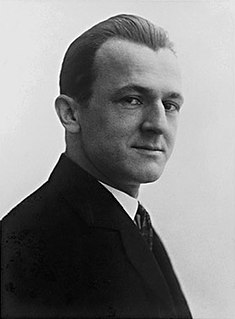A Quote by Hosea Ballou
It is very questionable, in my mind, how far we have the right to judge one of another, since there is born within every man the germs of both virtue and vice. The development of one or the other is contingent upon circumstances.
Related Quotes
It is often said that ‘the germ of all Stalinism was in Bolshevism at its beginning’. Well, I have no objection. Only, Bolshevism also contained many other germs – a mass of other germs – and those who lived through the enthusiasm of the first years of the first victorious socialist revolution ought not to forget it. To judge the living man by the death germs which the autopsy reveals in the corpse – and which he may have carried in him since his birth – is that very sensible?
Every human being lived behind an impenetrable wall of choking mist within which no other but he existed. Occasionally there were the dim signals from deep within the cavern in which another man was located so that each might grope toward the other. Yet because they did not know one another, and could not understand one another, and dared not trust one another, and felt from infancy the terrors and insecurity of that ultimate isolation there was the hunted fear of man for man, the savage rapacity of man toward man.
The vice I am talking of is Pride or Self-Conceit: and the virtue opposite to it, in Christian morals, is called Humility...According to Christian teachers, the essential vice, the utmost evil, is Pride. Unchastity, anger, greed, drunkenness, and all that, are mere flea bites in comparison: it was through Pride that the devil became the devil: Pride leads to every other vice: it is the complete anti-God state of mind.
Others are affected by what I am, and say, and do. So that a single act of mine may spread and spread in widening circles, through a nation or humanity. Through my vice I intensify the taint of vice throughout the universe. Through my misery I make multitudes sad. On the other hand, every development of my virtue makes me an ampler blessing to my race. Every new truth that I gain makes me a brighter light to humanity.
Virtue is the panacea for both body and mind. The virtuous person can be both healthy and happy. How is virtue to be cultivated? How can it express itself in daily practice? Through service to living beings, through seva. Virtue must flow through the triple channel of love, mercy and detachment, in order to feed the roots of seva.
In every case, we ought to act that part towards another, which we would judge to be right in him to act toward us, if we were in his circumstances and he in ours; or more generally - What we approve in others, that we ought to practise in like circumstances, what we condemn in others we ought not to do.






































